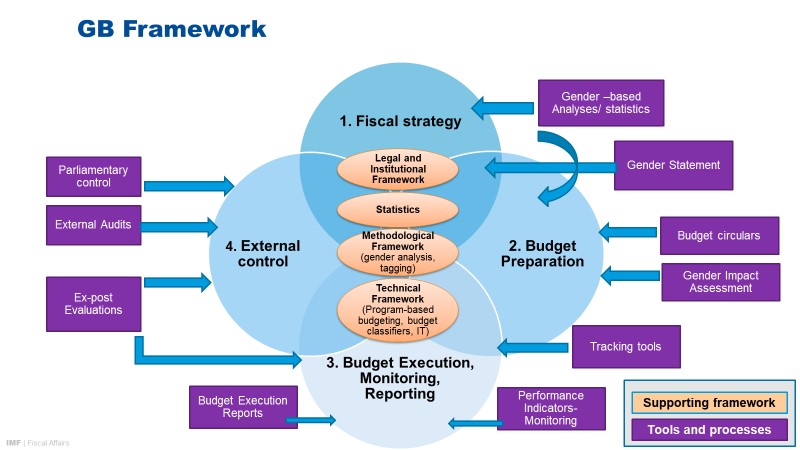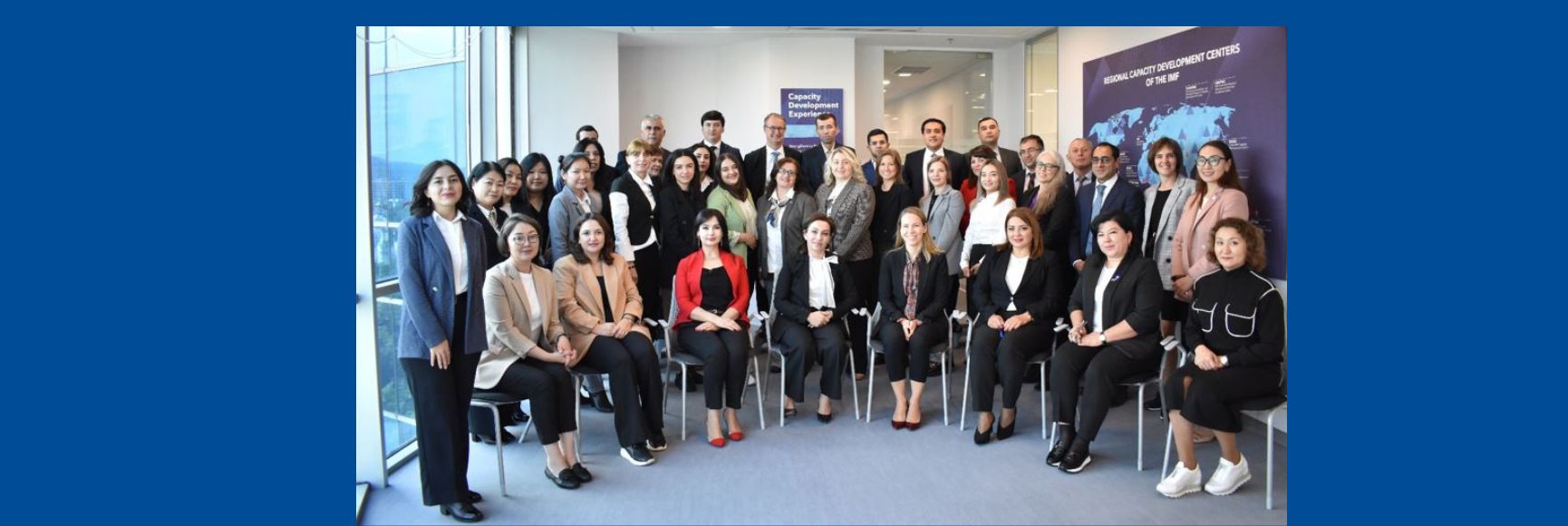
Posted by Virginia Alonso Albarran, Laura Gores, Monique Newiak, and Vincent Tang[1]
The IMF’s Fiscal Affairs Department (FAD) and African Department (AFR), in collaboration with the Africa Training Institute (ATI) organized a five-day remote course on Gender Budgeting for 65 government officials across 25 countries from Sub-Saharan Africa in January 2021.[2]
Gender budgeting experts from the IMF, together with experts from the World Bank, the PEFA Secretariat, the Canadian, Moroccan and Rwandan Ministries of Finance, the Austrian Parliamentary Budget Office, the UK’s Foreign, Commonwealth & Development Office and the World Customs Organization provided a detailed overview of how to mainstream gender considerations into the budget cycle, public expenditure management and revenue mobilization.
Why focus on gender equality now?
One year after the onset of the COVID-19 pandemic and the implementation of mitigation policies, taking stock of the impact on gender inequality is pressing, particularly as budgets and recovery strategies are now being formulated.
The pandemic is widening gender gaps in many countries, including in Sub-Saharan Africa. Women are in the frontline of fighting the pandemic, as 7 in 10 community health and social workers worldwide are female. Previous health crises suggest that teenage pregnancy could rise, and girls are less likely to return to school after school closures. Women bear the brunt of household and unpaid care work and are overrepresented in the informal economy. Economic restrictions therefore hit them particularly hard. Sadly, the incidence of gender-based violence is on the rise.
Gender equality is key to economic recovery and resilience. Empirical and theoretical evidence has shown that more gender equality is not only desirable but also crucial for higher growth, lower income inequality, and greater financial stability. Given the scale of the challenge, countries should use the powerful policy tool of the national budget to take aim at gender inequalities. Gender budgeting aims to maximize the effectiveness of this tool. The Sustainable Development Goals include gender equality and women’s empowerment (SDG 5) and acknowledge the importance of systems to track and make public budgetary allocations for gender equality (indicator 5.c.1).
How can Gender Budgeting help to reduce inequalities?
The 2017 IMF policy paper on Gender Budgeting in G7 countries defines gender budgeting as the integration of the gender equality perspective into fiscal policies (both on the expenditure and the revenue side) and PFM processes. Gender budgeting should assess the intended and unintended impact of policies on gender equality. This is critical in designing and implementing policies to address the widening gender gaps resulting from the pandemic.
The IMF’s analytical framework for gender budgeting identifies the tools and processes that can be used throughout the budget cycle—such as gender statements, and gender impact assessments or execution reports—and key elements of its supporting framework, related for instance to institutional and methodological issues (see Figure 1).
Figure 1 – Gender Budgeting Framework
What were the main lessons of the course?
Presentations and discussions around gender equality, macroeconomic performance and the IMF’s gender budgeting framework set the context for the course. Experts explained budgeting tools for each stage of the budget cycle (planning, preparation and execution) with hands-on case studies in smaller facilitated break-out groups. The last day also covered gender aspects of expenditure and revenue policies. International experience of selected country cases (e.g., Rwanda) and other regions (e.g., Morocco, Canada, Austria, Asia, Latin-America) put the broader lectures into context.
The main takeaways from the course are as follows:
- The budget is the key link between gender policies and their implementation. Equality goals in many areas, such as labor participation or education, require positive action to close gender gaps that needs to be reflected in budgetary allocations.
- Political support and an enabling legal framework are necessary to make gender equality policies effective. Ministries of Finance, as leaders of the budgeting process, and Ministries of Planning and Women are important players to support the work by line ministries.
- Ex ante gender impact assessments are important to gauge the direct and indirect gender impact of new policies but will only be effective if countries establish a clear methodology and build analytical capacity.
- Budget classifications or markers can be used to track gender-related activities through the budget. Program-based budgeting and IT systems are helpful, though not a pre-requisite. Other tools can also be used to support this process.
- Gender budget statements as a first step promotes the use of other gender budgeting tools, such as clear instructions in budget circulars, impact assessments, gender markers and better monitoring.
- Monitoring and evaluation can be a challenge. Gender-specific data and indicators should ideally feed into governments’ accountability frameworks.
- Revenue and customs policies and administration can have important impacts on gender equality and need careful consideration.
Interest in gender budgeting in the region is high. Almost all represented countries in the course reported plans to use gender budgeting or have already started implementing its tools. There is large potential to develop capacities in this area across the continent.
[1] Virginia Alonso Albarran, Laura Gores and Vincent Tang are with the IMF’s Fiscal Affairs Department; Monique Newiak with the Africa Department.
[2] Lisa Kolovich, Alberto Soler and Nino Tchelishvili also co-organized the course.
Note: The posts on the IMF PFM Blog should not be reported as representing the views of the IMF. The views expressed are those of the authors and do not necessarily represent those of the IMF or IMF policy.







